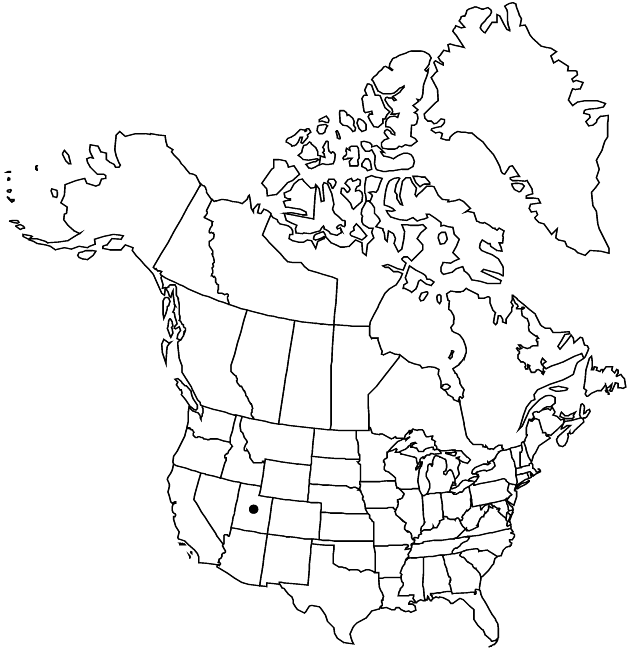Ericameria nauseosa var. salicifolia
Phytologia 75: 87. 1993.
Common names: Willowlike rabbitbrush
Basionym: Chrysothamnus salicifolius Rydberg Bull. Torrey Bot. Club 37: 130. 1910
Synonyms: Chrysothamnus nauseosus subsp. salicifolius (Rydberg) H. M. Hall & Clements
Revision as of 19:24, 16 December 2019 by FNA>Volume Importer
Plants 60–120 cm. Stems grayish to nearly green, leafy, loosely tomentose. Leaves grayish green; blades mostly 3–5-nerved, broadly linear, 40–90 × 3–6(–10) mm, faces tomentulose. Involucres 7.5–9.5(–10.5) mm. Phyllaries 11–17, apices erect, obtuse, outer abaxial faces glabrous or with apical tufts of hairs, inner frequently glabrous. Corollas 7.5–9.5 mm, tubes minutely puberulent, lobes 1–1.5 mm, glabrous; style appendages longer than stigmatic portions. Cypselae densely hairy; pappi 7.5–7.6 mm.
Phenology: Flowering later summer–fall.
Habitat: Sagebrush, pinyon-juniper, mountain brush, and aspen communities
Elevation: 1300–2900 m
Discussion
Variety salicifolia is known from Cache to Sevier counties. Intermediates between var. salicifolia and var. graveolens have been observed.
Selected References
None.
Lower Taxa
None.
